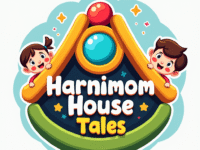
Books That Teach Toddlers to Say “Sorry” Without Forcing It
Saying “sorry” is a complex skill for toddlers. While we want to teach them empathy and accountability, forcing an apology can sometimes backfire—making them feel ashamed, confused, or resentful rather than truly understanding how their actions affect others.
So how do we raise toddlers who apologize sincerely and from the heart? Through connection, modeling—and yes, storybooks.
Why Forced Apologies Don’t Work
Toddlers don’t always understand why they’re being asked to say sorry. When we force them, we may unintentionally:
- Teach them that words are more important than actions
- Create shame instead of growth
- Miss an opportunity to teach real empathy
Instead, we want to model apologies, talk about feelings, and use books to show what empathy looks like in action.
How Storybooks Can Teach Real Apologies
Books help toddlers:
- Understand how others feel when someone gets hurt
- See that saying sorry can help fix feelings, not just problems
- Learn gentle language to use when something goes wrong
These stories introduce repair—not just remorse.
Best Books for Teaching Toddlers to Say “Sorry”
Ellie‘s Lilie’s Little Oops by J

In this gentle, relatable story, Ellie accidentally knocks over a friend’s blocks. She hides at first, but eventually learns how to check in, make things right, and reconnect through kindness—not just a rushed “sorry.”
SHOP NOW
Bonus: Includes an “Apology Helper” printable with toddler-friendly phrases like:
- “Are you okay?”
- “Can I help fix it?”
- “I didn’t mean to.”
I’m Sorry by Sam McBratney
Little Nutbrown Hare learns that saying sorry is part of friendship. Simple and sweet, with soft watercolor illustrations perfect for young toddlers.
The Berenstain Bears Say I’m Sorry by Jan & Mike Berenstain
When Brother and Sister Bear break a friend’s toy, they have to own up. This story emphasizes honesty, empathy, and natural consequences.
Sorry (Really Sorry) by Joanna Cotler
A great read for slightly older toddlers and preschoolers. This book walks through a ripple effect of unkindness—and how one real apology can shift everything back to kindness.
Gentle Ways to Encourage Apologies at Home
Try these strategies inspired by storybooks:
- Model saying sorry: Let your child see you apologize to them or others: “I’m sorry I spoke loudly. I’ll try again more gently.”
- Focus on repair: Ask, “What can we do to help them feel better?” instead of “What do you say?”
- Use a comfort object: A teddy or doll can help toddlers role-play empathy and apologies.
- Praise effort: “You gave her a hug after the bump. That was so kind.”
Free Printables
Final Thoughts
Apologies should come from the heart—not from pressure. By using storybooks, real-life modeling, and connection-based strategies, you’re helping your toddler build true emotional intelligence.













